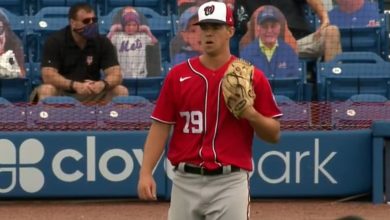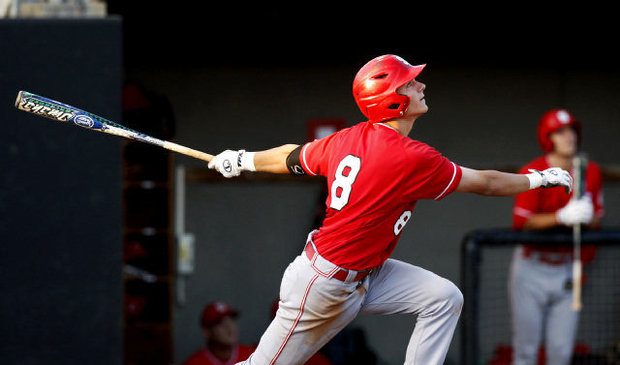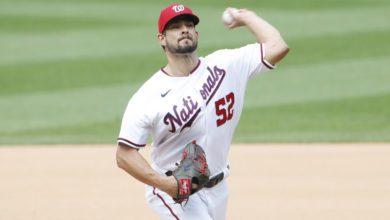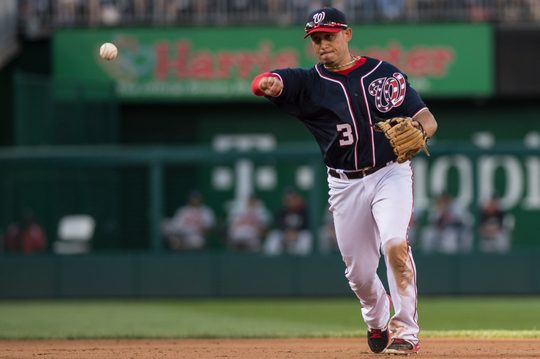

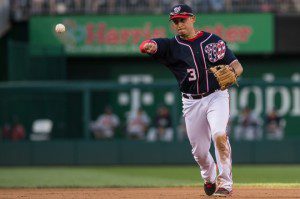
Once the proud shortstop of the Cleveland Indians, Asdrubal Cabrera was less than thrilled when he was sent packing to Washington D.C. on the final day of the non-waiver trade deadline. As a person who tends to examine both sides of an issue, I can appreciate his point of view.
Cabrera, 28, is an established major-league veteran and two-time All Star. He comes from Venezuela, a country known for legendary shortstops like Luis Aparicio, Dave Concepcion and Omar Vizquel. But now, Cabrera is playing for a team that already has that position occupied by Ian Desmond, a guy whose career fielding percentage of .963 will never win a Rawlings Gold Glove.
As a blue collar-type player, Asdrubal Cabrera enjoyed his seven years in a Cleveland uniform, through good times and bad, and hardcore Tribe fans respected that allegiance. After slamming a dramatic postseason home run against the New York Yankees in 2007, his rookie season, Cabrera expected to be an Indian for life. Unfortunately, the current status of his contract made that scenario an impossibility. Cabrera is in the final year of a deal in which he is banking $10 million. Cleveland General Manager Chris Antonetti could have stuck to his guns and kept Cabrera, knowing that his team was in the wild-card hunt. Instead, he pulled the trigger with the Nationals and received utility player Zach Walters plus some cash relief.
The real reason Cabrera became expendable, though, was a kid named Francisco Lindor, the Indian’s number-one prospect, who is expected to be the organization’s shortstop of the future. The slender Puerto Rican, only 20, is considered a superior defender with a rocket arm and terrific instincts. Lindor also makes good contact to all fields at the plate, and while he doesn’t possess the power of Javier Baez, the pair have similar backgrounds and success stories.
The reality to be considered here is that if Lindor is Cleveland’s long term solution, Asdrubal Cabrera is very much a part of Washington’s present plans. After recovering from his initial emotional letdown, he seems fairly comfy at second base, his new home with the Nats. He’s made only one error in 107 fielding attempts, and he has appeared a few times on the MLB highlight reel.
While Washington isn’t laden with foreign-born Latino players, Cabrera can at least hang out with countrymen Wilson Ramos and Jose Lobaton if he gets lonesome, and he looks to be respected by his new teammates. Another thing in his favor is that down on the farm, the National’s middle infield talent lacks depth and maturity, which would seem to spell job security. Still, as free agency approaches, Cabrera is uncertain about his future in the nation’s capital.
“I’m not sure if I want to stay or not,” pondered Asdrubal a couple weeks after the trade. “There’s nothing I can do, and I like to play short.”
It’s possible Cabrera made such comments out of frustration before he had a chance to settle in with his new club. Since that time, however, nothing has been said to the contrary. And Cabrera is no stranger to second base, having played 160 games there when he was with the Indians. Maybe I just don’t get it, but I don’t see a major problem here.
Personally, I think it’s time for Asdrubal Cabrera to quit being so moody and help the Nats get to the Fall Classic. The career numbers at his favorite position are not much better than those of Desmond. But his offensive value as a switch-hitter with pop from both sides of the plate could be a game-changer. In fact, both Cabrera and Desmond are former Silver Slugger recipients and could easily become the best power-hitting infield combo of all the playoff-bound teams.
The Washington Nationals ownership has the means and desire to reward their top-performing players. So, maybe if Asdrubal Cabrera gets motivated and wins a ring with the Nats, he might be inclined to stick around. Then again, maybe not.



